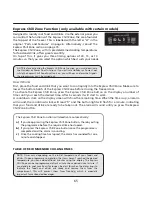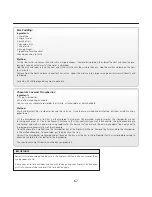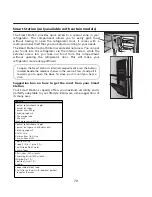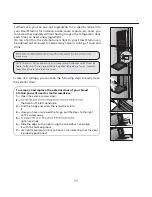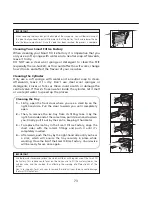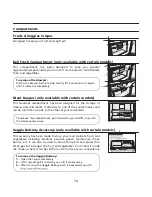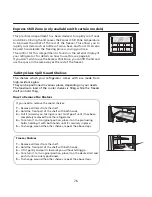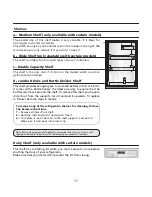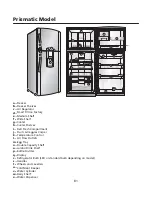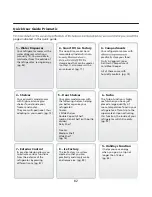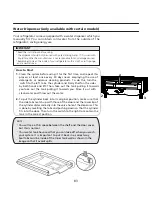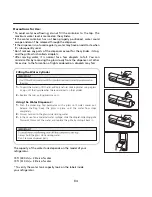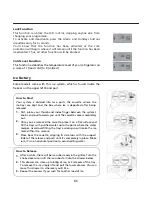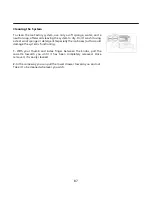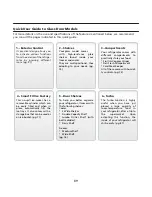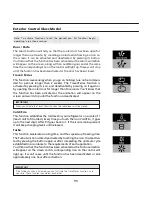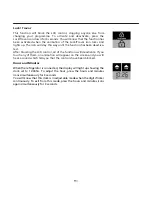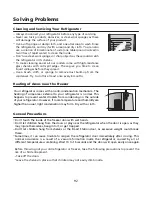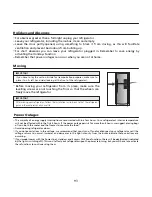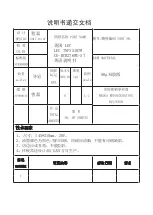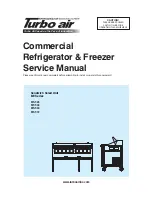
Getting the Most from Your Refrigerator
How to Store Your Food
79
After Buying Your Foodstuffs
After getting home from the supermarket, refrigerate or freeze perishable foods as soon as
possible.
We recommend that you press the “Power Cool” button so that the food can quickly reach a
suitable temperature.
To make sure that liquids which may leak from meat packaging don’t contaminate other foods in
your refrigerator, we recommend that you keep all meat in the Meat Keeper provided with some
models. If your model doesn’t contain this feature, store your meat products in plastic bags.
Store cooked food in closed containers and place them on a shelf above where raw foodstuffs are
being stored. This will avoid contamination.
To prevent contamination between different foods we recommend keeping food in lidded containers,
wrapped up, or well-sealed using aluminium foil, plastic wrap, or a lunch-box.
Do not store food in an open tin, transfer it into another container as oxygen in the air could react
with the metal and damage your health.
Ham, cold meats, and cheese should be kept in individual sealed bags or airtight plastic containers.
Allow hot foods to cool somewhat before storing them inside small containers in the refrigerator. You
will save light and prevent other foods in the refrigerator from being heated and thus adversely
affected.
Make sure that jugs of flavoured or natural water have secure lids to prevent undesirable odours
affecting them.
If you wish, store your fruit and vegetables in plastic bags in your refrigerator drawers. This
micro-environment will prevent different gases from mixing and thus conserve your food for longer.
We recommend you don’t wash fruit and vegetables before storing them in the refrigerator, as doing
so could damage the skin and increase decomposition rate. If they are very dirty, keep them in a plastic
bag so that they don’t taint the other foods stored in the compartment.
We recommend the refrigeration of eggs. Don’t wash them before storing, as this could damage their
natural protective layer, and thus contaminate the interior of the egg. Keep them in their protective
carton, with the air pocket facing upwards (the thick part). Wash them just before use to avoid
contaminating the food you’re preparing. For the same reason, abide by the use-by date.
Fruit and garden produce which should not be mixed.
To avoid undesired flavours and odours be aware of the
following information:
Cabbage, celery, carrots, figs, and potatoes absorb apple and pear
odours.
Figs and grapes absorb turnip odours.
Mushrooms and figs absorb onion odours.
Always keep your onions inside a plastic bag or in an airtight container to prevent their odour from
spreading throughout the entire refrigerator. We recommend you do the same with strong cheese.

